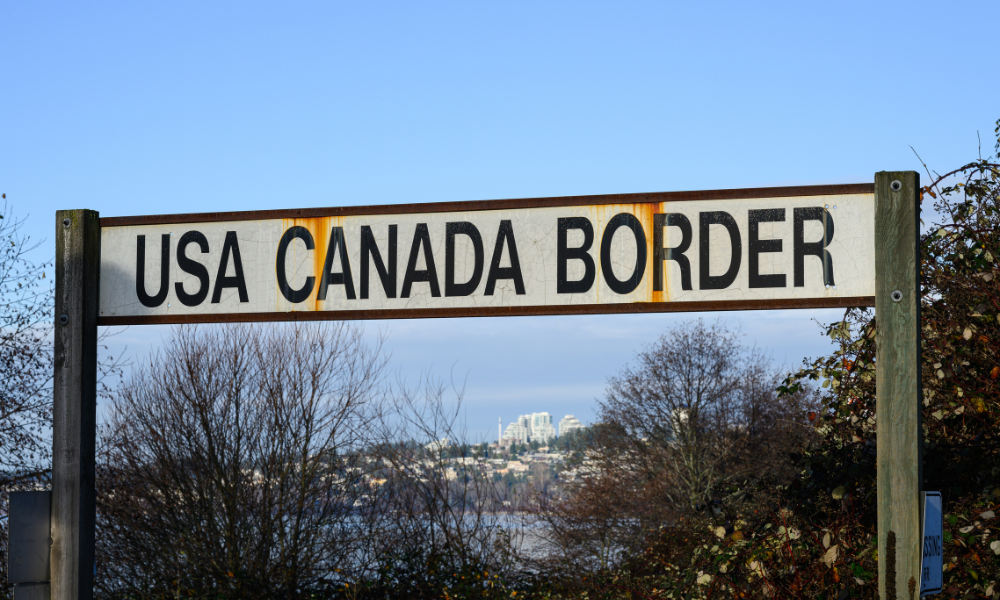
'This change will ease border congestion, improve fairness for applicants, and enhance the efficiency and security of our borders'

The federal government has put an end to the practice of flagpoling.
Effective Dec. 23, 2024, work and study permits are no longer being provided to flagpolers at a port of entry, according to the federal government.
“A strong Canada-U.S. relationship keeps people and goods moving safely while protecting both sides of the border,” said Marc Miller, minister of immigration, refugees and citizenship. “Flagpoling is unnecessary and diverts resources from critical enforcement activities. This change will ease border congestion, improve fairness for applicants, and enhance the efficiency and security of our borders.”
The federal government had announced its intent to end to the practice of flagpoling earlier in 2024.
Flagpoling occurs when foreign nationals who hold temporary resident status in Canada, leave Canada and – after a visit to the United States or St. Pierre and Miquelon – re-enter to access immigration services at a port of entry.
This practice has taken up significant resources at the border, diverting Canadian and American officers away from important enforcement activities and has contributed to wait times for cross-border travellers, according to the federal government.
Ottawa emphasized that immigration services at the border are meant for individuals arriving in Canada, not for those already in Canada.
Applications and renewals for work or study permits need to be submitted through Immigration, Refugees and Citizenship Canada (IRCC). Those who attempt to flagpole for a work and study permit will be told to submit their application to IRCC unless they meet limited exemptions.
Between April 1, 2023 and March 31, 2024, the Canada Border Services Agency (CBSA) processed over 69,300 flagpolers across Canada. Most of these requests occurred in the Pacific, Southern Ontario, and Quebec regions.
One expert expressed dismayed over the change in rules, saying that flagpoling brings a lot of value to those applying for permits in Canada.
“It changes the whole experience in terms of how quickly you can get work permits and study permits,” said Chris Brown, director at Tudor House Immigration Services in Vancouver, in a report from CTV News.
He said that flagpoling speeds up the process of obtaining a visa “enormously”, and that they resort to it at “every opportunity” that they can.
This means applicants are going to have to wait another “three to six months” on top of the initial application waiting time to receive the permit.
“If there's an employer in B.C. and they find someone they want to hire, they can go through all the legal ways to hire them and, regardless of what program they choose, that can take months to do. At the end of that process you have an eligibility verification that the applicant can apply for a work permit,” he said in the CTV News report.
“During the flagpoling days, we could just send them to the border and they get their work permit immediately, and the very next day they are working for their employer.”
As of Dec. 31 2024, the average processing time for a work permit issued to those already in Canada was 156 days, according to CTV News.
However, in very limited circumstances, work and study permits may still be granted at a port of entry to individuals who otherwise meet the definition of flagpoling. The exemptions include:
Ottawa has made significant changes to immigration rules over the past year.